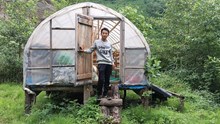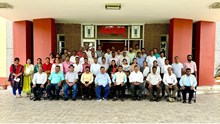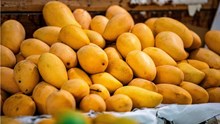
The global COVID-19 pandemic has forced the Government of India to implement the world’s largest lockdown. While the nationwide lockdown is undoubtedly a definitive solution to combat the pandemic, it has placed a massive burden on the economy and those living on daily income. There are an estimated 42 crore Indians working in the informal sector who have their livelihoods at stake due to the lockdown. A recent article stated that “More people in India might die from hunger than from COVID-19 as a result of the lockdown measures.”
While hunger persists at one end, agriculture produce lies unsold due to supply chain challenges in the market. Post the lockdown, almost 50-60% of Mandis (official & designated places for agriculture commodity transactions) have been shut down, which has severely impacted the direct agri owners (105 MN owners) and the overall agri sector (217 MN workforce). Farmers are undertaking distress sale of produce at prices lower than MSP due to lack of labour, limited access to buyers, and unavailability of logistics providers. In March ’20, arrivals in wheat have dropped by 31%, and arrivals for Onion and Potato have dropped by 60% as compared to March ’19.
NGOs, foundations, and other charitable organizations are working tirelessly to supply essential commodities to those in need. There is a massive interest among the philanthropic community to fund the supply of essential commodities (vegetables and staples). It is estimated that over INR 200 crores have been committed by charitable organizations towards the distribution of food during the lockdown period. Since these organizations are traditionally not in the business of procuring agriculture commodities, they face difficulty in sourcing bulk quantities at a quick pace, which is the need of the hour to satisfy substantial demand.
In these times, Farmers, Farmer Producer Organizations (FPOs), and Wholesale Traders can supply goods to NGOs to satisfy the sudden increased demand. This would also help in the liquidation of stocks and boost income to the bottom of the supply chain. Recently, Rahuri Krushi Farmers Producers Company, an FPO from Rahuri in Maharashtra, supplied over 200 tons of fresh produce to an NGO in Mumbai for distribution to around 70,000 families in slums in Mumbai through an online trading platform called Bijak. Through this trade, Bijak has managed to create a dual impact of ensuring food availability to the marginalized while generating income to the needy farmers.

Anil Gawade, Director of Rahuri Krushi Farmers Producers Company says “Bijak connected us with NGOs to supply onions. In the crisis situations of COVID-19, we were able to provide income to our farmers and were also able to serve people in need. We are happy to be registered with Bijak as a certified supplier.”
There is also a drastic shift in the way agricultural trade is happening a lot of farmers/FPOs/traders are transacting online or over a phone call because physical visits are impossible. There has been a significant push from the government as well to improve the E-NAM infrastructure to enable trade to occur remotely. Several initiatives such as an option to undertake direct trade without having to be present in Mandis, online quality control, Farmer and FPO training modules, and linking warehouse receipts to the E-NAM portal have been launched during the lockdown period. As a result, we have seen more and more traders/farmers adopt online platforms, and this is where Bijak helps find reliable buyers & suppliers in the agriculture ecosystem.
Bijak is an online trading platform that facilitates free trade of agricultural commodities. Bijak aims to bridge the information asymmetry and lack of accountability in the trade of agricultural commodities. Wholesale traders, who control at-least 80% of India’s USD 300 billion agriculture value chain, have limited access to technology, information, and credit. Bijak helps these businesses discover each other with a counterparty rating so that customers can transact with minimal friction by accessing Bijak’s layer of trust & reliability. Since launch in April 2019, Bijak has expanded across 22 states, 400 regions, and 80+ commodities.
Bijak has recently launched a nationwide campaign called Together Against COVID to supply essential commodities to NGOs. Bijak can deliver bulk quantities of essential commodities in relatively quick time to any metropolitan city in India. Bijak’s supply chain is closely linked with agriculture traders and transporters and is not impacted due to the lockdown regulations. Bijak has launched a web platform (together.bijak.in) for charitable organizations to raise demands and suppliers (farmers, FPOs, or traders) to post the availability of stocks. Bijak will match charitable organizations to suppliers and bridge the supply-demand gap.
If you are a wholesale trader, FPO, or a farmer, you can sell bulk quantities of agriculture produce through the Bijak Together platform. You can place your availability on the above website or call Bijak customer care at +91-9764978252. You can also download the free Bijak application on Google PlayStore to sell goods to trustworthy buyers (commission agents, traders, exporters, other institutions, etc.) from all over India. The Bijak application also offers free services such as easy bookkeeping, quick credit, safe payment gateway, and accurate market rates.
Lastly, India is an agriculture-centric economy, and we have seen time and again how dependent the country is on farmers and other agriculture ecosystem actors. In times of crisis, it is the responsibility of these agriculture ecosystem actors to step up and can come to the rescue of those suffering from hunger.
Join Bijak’s Together campaign and help India fight COVID-19.















